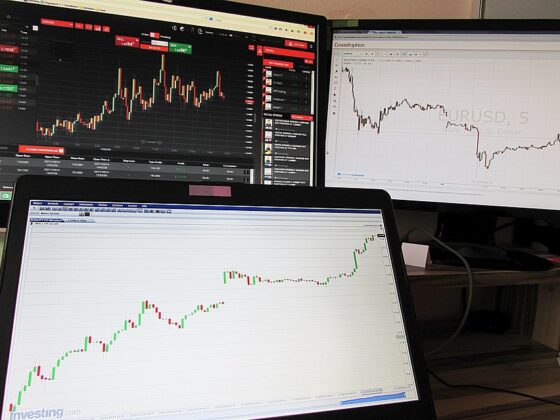Trading can be an exciting and potentially rewarding venture for individuals looking to make some extra income. However, it can also be a complex and risky endeavor, especially for beginners. In order to navigate the trading world successfully, it is important to have a solid understanding of how it works and to make informed decisions. Here are some tips for beginner traders to help make their trading experience as successful as possible.
1. Educate Yourself
One of the most important things you can do as a beginner trader is to educate yourself about trading. This includes understanding the different types of trading, such as stocks, options, and forex, as well as learning how the market works and what factors can influence it. There are countless resources available online, including articles, tutorials, and webinars, that can help you gain a better understanding of trading.
2. Start Small
It can be tempting to jump in headfirst and start trading with a large sum of money, but this can be a risky move for beginners. Instead, start small by trading with a small amount of money that you can afford to lose. This will allow you to gain experience and practice trading without risking too much of your investment.
3. Set Realistic Goals
Before you start trading, it is important to set realistic goals for yourself. Determine what you hope to accomplish through trading, whether it is to make a certain amount of money, learn a new skill, or simply enjoy the process. Setting goals can help you stay focused and motivated as you navigate the trading world.
4. Use a Demo Account
Many trading platforms offer demo accounts that allow you to practice trading with virtual money. This is a great way to gain experience without risking any of your own funds. Take advantage of demo accounts to familiarize yourself with trading platforms and strategies before you start trading with real money.
5. Develop a Trading Plan
A trading plan is a set of rules and guidelines that outline your trading strategy. This plan should include your goals, risk tolerance, and the strategies you will use to achieve them. Having a solid trading plan in place can help you make informed decisions and stay disciplined as you navigate the markets.
6. Manage Risk
Risk management is a critical aspect of trading, especially for beginners. It is important to understand the risks involved in trading and to manage them effectively. This includes setting stop-loss orders to limit potential losses, diversifying your investments, and not risking more money than you can afford to lose.
7. Stay Informed
The trading world is constantly evolving, with new trends, news, and events that can impact the markets. Stay informed by reading news articles, following financial blogs, and watching market updates. Keeping up-to-date on market trends can help you make more informed trading decisions.
8. Learn from Mistakes
Trading can be a learning process, and it is common to make mistakes along the way. Instead of getting discouraged by mistakes, use them as learning opportunities. Analyze what went wrong, and use that knowledge to improve your trading strategy moving forward.
FAQs:
Q: How much money do I need to start trading?
A: The amount of money you need to start trading can vary depending on the type of trading you are interested in. Some platforms allow you to start trading with as little as $100, while others may require a larger investment. It is important to research different platforms and determine how much you are comfortable investing.
Q: What is the best trading strategy for beginners?
A: There is no one-size-fits-all trading strategy for beginners, as everyone's trading style and goals are different. It is important to experiment with different strategies and find one that works best for you. Some common strategies for beginners include trend following, swing trading, and day trading.
Q: How much time do I need to dedicate to trading?
A: The amount of time you need to dedicate to trading can vary depending on your trading style and goals. Some traders may spend only a few hours a week trading, while others may trade full-time. It is important to find a balance that works for you and fits into your schedule.
In conclusion, trading can be a rewarding venture for beginners, but it is important to make informed decisions and be prepared for the risks involved. By educating yourself, starting small, setting realistic goals, and developing a trading plan, you can increase your chances of success in the trading world. Remember to stay informed, manage risk, and learn from your mistakes to improve your trading strategy over time. With these tips in mind, beginners can navigate the trading world with confidence and increase their chances of making successful trades.











